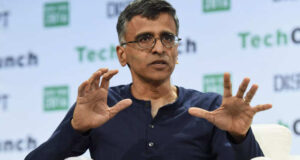Nissan has said it will cut global production capacity by 20% and reduce its workforce by 9,000 after failing to meet financial targets.
In its first half 2024 results, the firm’s net revenue decreased by 79.1bn yen (£400m) to 5.98tn yen, with profit margins falling to just 0.5%. Global sales volumes decreased year-on-year to 1.6 million units, while higher selling expenses and inventory optimisation efforts, particularly in the US, also impacted its profitability.
“Facing a severe situation, Nissan is taking urgent measures to turn around its performance and create a leaner, more resilient business capable of swiftly adapting to changes in the market,” the firm said.
“To achieve healthy growth in the future, the company will implement a structure to secure sustainable profitability and cash generation, even with projected annual sales of 3.5 million units by fiscal year 2026.”
As part of efforts to revitalise its fortunes, Nissan plans to bring forward the introduction of new energy vehicles in China and plug-in hybrids and e-POWER in the US as part of its Arc plan. The plan was announced last year in a bid to ramp up the manufacturing of its electric vehicle (EV) models over traditional internal combustion engine vehicles.
Nissan also aims to reduce vehicle development lead time to 30 months and deepen its collaborative efforts with Renault Group as part of its broader strategic alliance.
Nissan’s Sunderland facility is currently the largest car-building plant in the UK and manufactures as many as 600,000 cars annually. Last year, the firm said it would invest an additional £2bn in the plant to produce three EV models.
It committed to a direct investment of up to £1.12bn to achieve this, as well as wider investment in infrastructure projects and the supply chain – including a new gigafactory – bringing a total new investment up to £2bn. The job cuts announced yesterday were on a global basis so it’s not clear how many Sunderland positions will be cut.
In April, Nissan revealed it was piloting the manufacture of all-solid-state batteries at its Yokohama Plant in Japan that will be a “game-changer” for the EV market.




